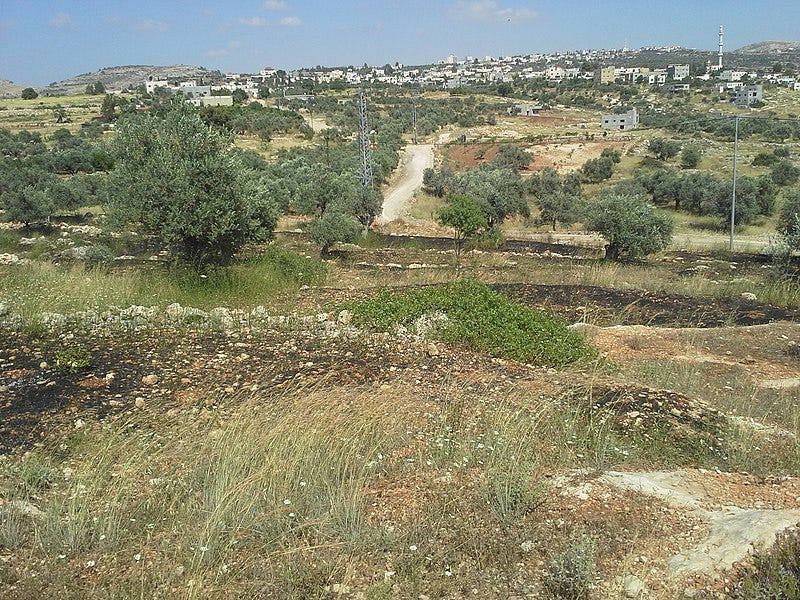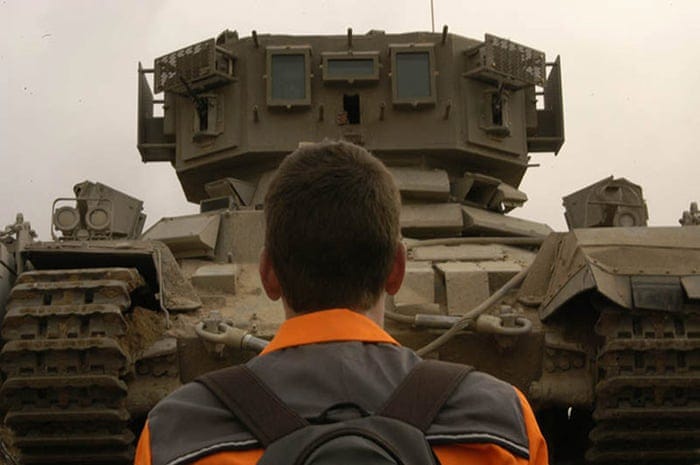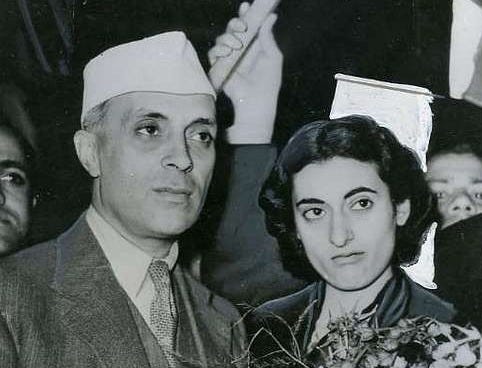Tragedy: a beginning and an explanation
On the political lessons of personal catastrophe – and a region on fire

On 6 September in the early afternoon, a soldier in the Israel Defence Forces, on duty near the town of Beita in the northern West Bank, levelled his rifle and fired toward a young woman about 200 metres away. It was quiet. The protest that had begun after the noon prayer had calmed down, and no rocks were being thrown toward the distant soldiers.
The bullet killed Ayşenur Ezgi Eygi in an instant. She was the eighteenth participant in the demonstrations at Beita killed since the beginning of 2021; the first with an American passport. It has been more than two decades since I joined several similar demonstrations in the West Bank. From videos of the scene, I recognise the olive trees and hardscrabble hillsides. I miss them so much.
I miss them most of all in the peace of first light when I and other volunteers would walk down a hillside to pick olives with Palestinian farmers. We hoped that our presence would dissuade the Israeli settlers who would come to harass the families and prevent their harvest. Sometimes settlers came. From what I understood about what happened when we weren’t there, we helped.
I miss the call to prayer ringing out over the still hillside terraces, bread fresh from the woodfire oven dipped in bitter, dark green, olive oil, and the long servees taxi rides with Arab pop or oud music on the radio. I miss the clarity of what we stood for, the immediacy and physicality of our tasks, and the certainty of the times we – small groups of Palestinians and international volunteers – held back the humiliations and violence a little.
I miss my own naivete; my eighteen-year-old sense of possibility, yet unburdened by tragedy. I don’t think I’ll ever be able to return.
My first, personal brush with disaster came within months. I travelled to Gaza City. Then to Rafah. There, two friends were killed while I stood watching: first Rachel Corrie, then Tom Hurndall. I miss them most of all.
Over the years since, I have struggled to interpret that experience, and to be faithful to it. Since my initial email, sent the morning after Rachel was killed, I didn’t write about it at all for more than twenty years, despite that I spent a good part of that time writing about the Middle East and conflict for a living, and was asked to several times. I managed for the first time this March, in a piece for the 21st anniversary of Rachel’s killing, just as Israel was massing its forces for the assault on Rafah.
But there was nothing in that article of what, specifically, that event meant to me. It was written for Rafah, for the movement against genocide, and to honour Rachel’s courage. I’ve always been wary to frame it in more personal terms because it has always seemed to me that Rachel’s public legacy was above all for her parents to interpret. And that particular moment demanded nothing less. But I think now enough time has passed for me to be able to share a little about what I take from those months, because it is part of my story too.

My initial reaction, on an emotional level, was rage. It stayed with me, and dominated my internal life, for about a decade, and begun to cool only slowly thereafter. Intellectually and politically, my response was an extreme radicalism, which was at the time no more than nascent within me. I remember, early in my stay in Rafah, before Rachel was killed, sitting near a water pump Israel had demolished (they demolished it again this year), explaining to an anarchist volunteer with a pink streak in her black hair that I was just working things out, but thought that I was some sort of social democrat. She was not impressed. A reporter who passed through Rafah called a discussion between me and another volunteer “half-baked, freshman-level political rhetoric”; since I wasn’t even a freshman yet, I might have taken it is a complement.
As I left Gaza after Tom was shot, I remember a clear recognition that I had a choice about how to interpret what I had seen in Palestine. I could view what I had seen as acts of evil of a unique kind in which the distinctive fact of Israel itself was a sufficient explanation. Alternatively, I could understand them as expressions of broad structural phenomena. I chose an extreme version of the latter, and arrived rapidly at a comprehensive and uncompromising radicalism. To fix Palestine, everything needed to be fixed. Over the years my way of thinking became less crude, but that is where it begun, and the imprint of that foundation was long-lasting.
I was in Gaza because I was an idealist by instinct, and because nothing in my experience until then had taught me otherwise. And for more than a decade, my reaction to what I saw there was formed by that instinct. But, over time, you get to thinking. And, as it would happen, such experiences often have a different outcome; realism, a countervailing political philosophy founded on the notion that tragedy is a source of wisdom. It was often through catastrophic events that the heroes of classical Greek tragedy achieved anagnorisis; the abandonment of illusions that had been the hidden source of their suffering. So it has often proved.
The chaos and mass poverty that followed Germany’s defeat in World War I were the occasion for Max Weber’s Politics as a Vocation, the first important text of 20th Century realism. The same country’s descent into Nazism, and the millions who lost their lives as a result, echoed in the thought of German-Jewish refugees who found their way to the United States, such as Henry Kissinger and Hans Morgenthau, who founded the modern discipline of international relations.
Great writers of earlier centuries, since claimed for the realist tradition, lived in times of anarchy, multi-sided war, and shifting alliances, in which the possibility of absolute destruction was ever-present and often realised. The pre-Greece of Thucydides, and the pre-Italy of Niccolo Machiavelli were, not coincidentally, both peninsulas crowded with competing city states.
These were generational experiences, but personal ones can have a similar effect: the loss or humiliation of a father figure often seems to do the trick. Indian Prime Minister Jawaharlal Nehru’s dream of self-sufficiency, third-world solidarity, and a non-aligned alternative to Cold War bipolarity was destroyed by China’s attack on India in 1962; he was reduced to pleading for aid from the super powers. It broke Nehru’s heart, his health declined, and he died within eighteen months. Nehru’s daughter, Indira Gandhi, went on to become Prime Minister herself and an exponent of a “hard realism” in foreign affairs. As she later put it: “my father was a saint. I’m not.”
When Lyndon Baines Johnson was 14-years-old, his father, a romantic in ideas and a populist in politics, lost his family’s homestead and, with it, financial security and hometown prestige. LBJ is the subject of a multi-volume biography that has become the definitive study of realism in domestic politics. During the Cultural Revolution, Xi Jinping’s father was disgraced and sent into internal exile. His mother was forced to denounce her husband, and Xi’s sister was hounded to suicide. He grew to lead the party that did those things. We could go on.
I do not compare myself to these individuals in ruthlessness or stature. What I mean to say is: while the experience of disaster can lead to sympathy for others who suffer, it is not merely a font of solidarity and human fellow-feeling. It often also fosters a way of seeing the world in which the possibility of catastrophe is ever present, and the value of preventing these worst-case outcomes is very great. In this view, tragedy and injustice are unavoidable; often our best hope is to realise the least terrible outcome. The journalist Robert Kaplan has called this outlook “the tragic mind”. It isn’t merely a matter of being “realistic”; everyone claims that for themselves, even those whose declared next step is to demand the impossible. Nor is it merely cynicism, or caution. It is a “fusion of fatalism and struggle”; recognition of limits to the malleability of the world and determination to pursue, within those constraints, great ambitions.
One element that makes tragic experiences formative is their visceral character: they call into question one’s own security, socially or physically, whether directly or through a parental figure. But this of itself is not enough to produce a sense of tragedy. If it were, then everyone in Gaza would have this attitude, the Hamas leadership included, and a lot of things would have been very different. Suffering has other consequences, which can exist alongside a tragic sensibility, or instead of it: amongst them timidity, rage, callousness, desperation, a retreat to personal ambition, or revolutionary zeal. What predominates depends on personality, circumstances and ideas.
The second decisive element is a sense of responsibility; if not for what has happened, then for what may happen in the future. My own experience of personal catastrophe was directly bound up with decisions that I had made. People used to jump to tell me that I wasn’t responsible for what happened to Rachel and Tom, out of a sense that I might be suffering from survivor’s guilt. But in my view, to deny that I held some responsibility would be an evasion. This doesn’t diminish, in the slightest, the responsibility of their killers, nor that of the Israeli state. But responsibility is not, in the language of economists, a rival good. To take responsibility oneself does not diminish that of others. I was an adult, just about, and I participated in collective decisions in the spring of 2003 that lead to the deaths of two of my friends. I’m not paralysed by guilt. I was young, the circumstances were difficult, and our project was essentially noble. And yet.
Robert Kaplan learned his realism as a young man when, after traipsing around the world for a few years, he made aliyah, and joined the Israel Defense Forces. “I became a realist in Israel because Israelis didn’t have the luxury of living through ideals,” he has said. “They had a real world and dangerous borders.” So we both got a dose of realism courtesy of the IDF, just at opposite ends of the gun.
The tragic sensibility as such tells us nothing about what is worth fighting for; gives no tool to judge what evils are the greater, who to include within our sphere of responsibility, or what is possible and impossible in the world. It is a cast of mind that we bring to politics, not an entire political philosophy. I have little in common, for instance, with either Kaplan or John Mearsheimer, the best known exponent of neo-realism, an academic theory of international relations.
Yet I myself never feel more tragic in my outlook, more realist in my inclinations, more burdened and separated from others by my experience in Palestine, than in the contemporary Palestinian solidarity movement. There, the predominant mood is untempered fury, romance, and maximalism. Faith in armed struggle in Palestine and direct action at home, “by any means necessary,” and programmatic insistence on one unitary state and complete right of return for all refugees and their descendants as the precondition to any peace.
I believe the complete right of return and a single, democratic civil state between the Jordan and Mediterranean are just demands; but I also believe that the chances of achieving them within our present strategic horizon, or by force at any time, are near zero. International law indeed protects the right to armed resistance to occupation, but this is subject to the ordinary protections due civilians.
Last year I attended a large meeting at which one contributor proposed that activists “become ungovernable” through direct action on the streets and at the premises of arms companies. It was obvious to me that that was not going to happen; a wholesale misunderstanding of when and how such explosions happen, and what the consequences are. Another contributor insisted, to spontaneous and sustained applause, that we should not call for a ceasefire, but rather victory to the armed resistance, to whom we should offer our unconditional solidarity. I’d like to think that many of the people at the meeting would take the opportunity, on reflection, to express more nuance. I also believe that the large majority of people on the big national demonstrations are there with more realistic and humane objectives.[1]
What troubles me about the maximalism and violence of some of these ideas is not only that they are offered up vicariously by people who have lived their lives in comparative stability and comfort – although, no doubt, there are exceptions. What troubles me is the lack of seriousness: the preference for slogans over outcomes, exciting ideas over reality, the unwillingness to countenance the real possibility of still greater disaster – such as the ultimate ethnic cleansing of northern Gaza – and the basic ignorance of the history and contemporary reality of the Palestinian armed struggle.
Not that they are the only ones. Writers in Foreign Affairs and other opinion formers in the American press have spent the past year telling themselves and others that Israel is doomed to fail in Gaza, because brutality cannot succeed in counterinsurgency. The implication is that Israel will, of necessity, come round to the liberal methods of hearts, minds, and a political process. The truth is more terrible.
As I write, places that I have lived, and that I have loved, are devastated. The West Bank, Gaza, now Beirut. This week I saw a video of a little girl in Gaza fighting for her breath against the weight of rubble from her collapsed home, her tiny chest giving out before the rescuers lifted her out, limp and lifeless. Settlers humiliating farmers in the West Bank. Beirut; smouldering ruins covering hundreds dead, full of fear, with no end in sight.

I don’t have the illusion that I could, through personal effort have prevented any of this. I do believe that people who want sincerely to prevent these things are now powerless, as a current, in part because they fail to understand the reality that produces and structures these outcomes, and that this misunderstanding leads them constantly to misdirect their energies and their voices. There are other failures too, and I will come to them another time.
All of this is to introduce the project, tentatively called Zero Line, that begins here, and to explain one of its internal tensions: between fatalism and struggle. It is a project about war, international politics, and the ideas that both animate and respond to them. Sometimes I will lean toward fatalism, and may at those times seem oddly dispassionate for someone of my personal history. But, especially then, you will know, that my approach is rooted in Palestine, in Gaza, in Rafah.
Thank you to all of you who’ve signed up, and thank you all the more if yo’re still reading. I’ve started this project a bit later than I anticipated, but I’ve been working on a few strains of research in the meantime that I’m looking forward to sharing. More soon. I’d like nothing more than to hear your thoughts on what I publish, now or in the future, and if you have questions or topics you’d like me to address. If you’re looking to donate to help people affected by the crisis in Lebanon, please consider Basmeh and Zeitouneh.
[1] Is this also an indictment of my younger self? Somewhat. I would have said the bit about being ungovernable; but not the bit about unconditional solidarity with the armed groups; I understood too much for that, even then. Regardless, I don’t blame the individuals that much. I see it as a failure on the level of the movement.





Your writing in a way is very reminiscent of Rachel's, where I gain a bit more insight on each re read. Your vivid description of the small parts of peace in Palestine are beautiful, and all the more heartbreaking with how bad things are now. I am often struck each day when I experience simple pleasures, how unfair it is that those in Gaza can't even experience a sunset like I can peacefully. That is all most of us want, and as many in the press and in my own government try to dehumanize Palestinians, your writing shows our similarities over our differences (much as Rachel did). Though I am very involved in pushing for a free Palestine, I will admit that I agree on your criticism. Violence is never something to aspire to, and much as I learned during the BLM movement here, it only puts the most vulnerable in harms way. While of course as you said, armed resistance is permitted, I don't think it is something most people truly want, even if they speak out of turn in anger (which I am certainly guilty of, and certainly have wasted my energy on counter protestors). I am constantly amazed at your ability to continue such important work, and to be so vulnerable and honest in your writing, which is harder than people realize. There is still a lot about the history of Palestine I would like to learn about, and I look forward to reading your thoughts and learning more. Thank you for all your work, it gives me a great deal of hope.